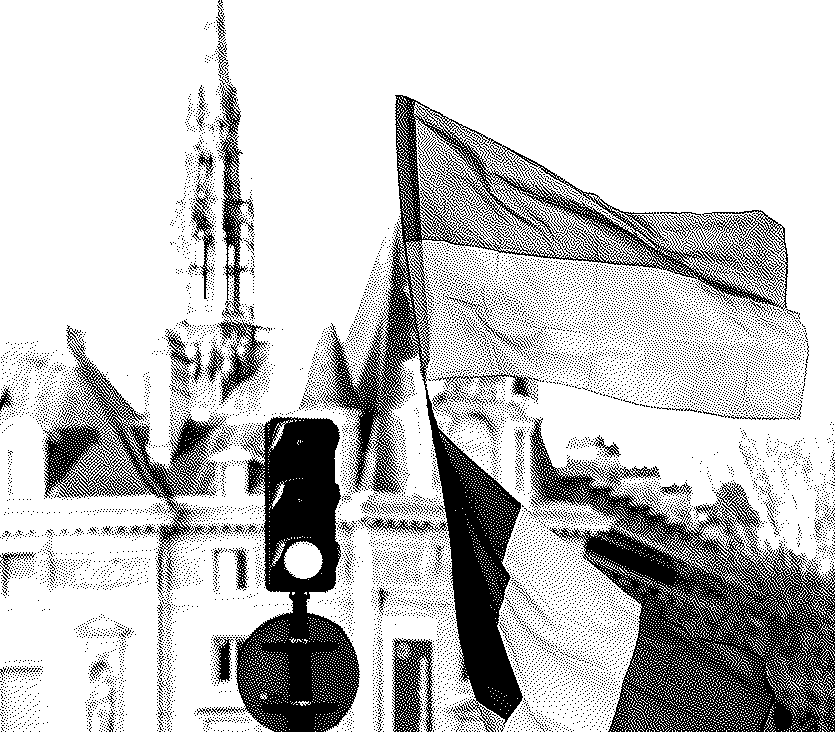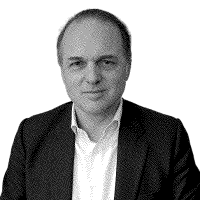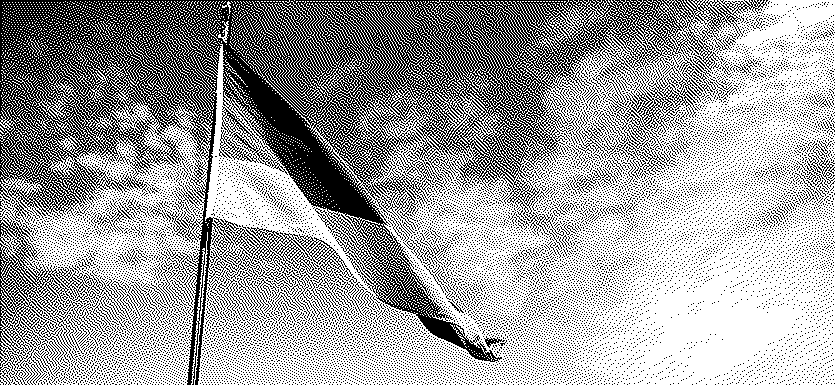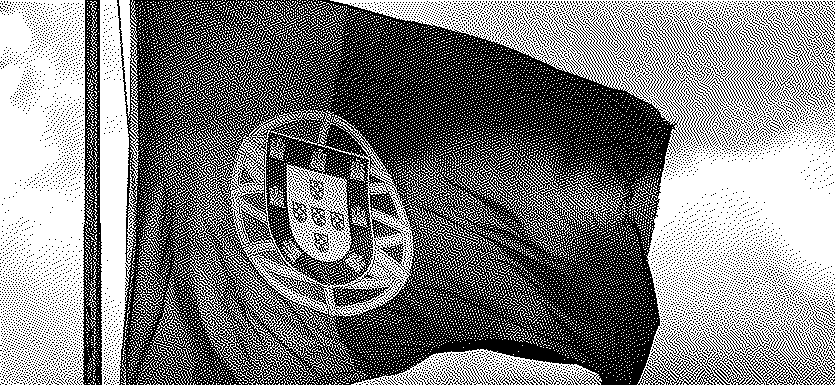Russia’s invasion of Ukraine marks the return of a large-scale war of aggression on European soil, initiated by a major military power, and a nuclear one. The Russian leader has developed a historical view that Ukrainians are not a separate nation and should be united with their Russian neighbours, willingly or by force. He was sadly mistaken, as Ukrainians have, on the contrary, demonstrated their strong national feeling and spirit of independence by valiantly resisting Russian aggression. For Vladimir Putin, it is also a struggle against what he calls the “global West”, embodied by the United States, a rival power, and Europe, a rival in terms of its way of life. On this second point, Putin has been confirmed in his initial preconceptions, and Europeans are therefore, unwillingly, largely involved in this conflict.
Solidarity with Ukraine was instinctively felt by Europeans, including because a rapid annexation of all or part of its territory could mean that other countries on the continent would be the next battleground with Moscow. The European reaction also reflects a sense of emotional solidarity with the Ukrainians, who are seen as full Europeans. If this war is at the origin of a firm reaction of Europeans, who feel “united in adversity”, it also induces a change in the European diplomatic balance, internally and externally, while inviting to redesign the political organization of our continent. It is in these various ways that it is changing Europe – while posing some notable challenges to France.
1. A moment of European unity
The reaction of the European Union (EU) to the Russian invasion of Ukraine was both swift and consistent, despite tensions, nuances, and very different starting points vis-à-vis Moscow.
If there is one symbol of this unity, it is the reception of Ukrainian refugees across Europe. The reception of Syrian or Sudanese refugees had indeed deeply divided the EU member states in the 2010s. In contrast, there was no conflict or collective psychosis when Ukrainian civilians crossed the borders, as they were welcomed as European “cousins”. Even Central and Eastern European countries, which had refused to share the burden of reception and had even developed xenophobic rhetoric in the 2010s, accepted the Ukrainians in very significant proportions.
Europeans have then shown political, humanitarian, diplomatic and economic solidarity, and this solidarity has even taken on a military dimension, since an element of the EU budget, the “Peace Facility”, has already made it possible to finance the delivery of arms to Ukraine to the tune of more than 3.3 billion euros. This is a truly groundbreaking initiative for the EU, a new step in dealing with this war – which was not a foregone conclusion since some member states such as Austria and Ireland are neutral countries. The visit of Ukrainian President Zelensky to Brussels in February 2023 was a way of acknowledging this strong commitment, for which he thanked the Europeans while stressing that the conflict had united them as rarely.
At the same time, the Europeans have also introduced numerous sanctions against Russia. In February this year, a tenth set of sanctions was adopted: that’s almost one per month since 24 February 2022. The “Repower EU” plan, which provided for limiting and then halting imports of Russian hydrocarbons, has also been implemented: we have not imported any more Russian coal since the summer of 2022, we have done without 92% of Russian oil since the end of 2022 (only the 8% that is transported by pipeline remains) and gas imports are now residual, even though it was only planned to reduce them by 2/3 by the end of 2022.
The fear of the “red peril”, which led to the launch of European construction, and then the fear of the geopolitical void created by the fall of the Berlin Wall in 1989, had already marked two founding moments that led Europeans to become more united. We are now experiencing a third founding moment, marked by a new threat from Moscow, which is generating an almost organic increase in European unity.
Finally, during the French Presidency of the Council of the EU in the first half of 2022 (“PFUE”), we have seen that the surge of unity triggered by the war in Ukraine has had a positive impact on the handling of other challenges – which has been able to progress thanks to the feeling that Europe is going through such a special moment that it requires greater cohesion. With the return of war to our continent, the treatment of other priorities suddenly perceived as more prosaic led to less tense negotiations, for example on digital regulation or the fight against climate change. These political convergences were made possible by the ability of the French authorities to conduct “crisis management” activities related to the Russian invasion of Ukraine and the continuation of scheduled legislative negotiations simultaneously – to the point of making the ‘EUFP’ a doubly memorable rotating presidency.
2. New diplomatic balances in Europe
The European unity generated by the Russian invasion of Ukraine should not hide the fact that the current war is also producing a new situation, which marks a modification of the internal and external European diplomatic balances.
From an economic point of view, this war is weakening our continent, which is the most exposed, if not in the front line.
The European economy was largely dependent on Russian raw materials, as well as on Ukrainian, Belarusian, and Russian agricultural products. Not all EU countries were equally dependent on Russian hydrocarbons: Germany took strong measures to emancipate itself from them, but Hungary, for example, negotiated exemptions to the EU embargo on Russian oil to preserve its pipeline supplies. The need to mitigate our economic interdependence with Russia has generally pushed us to find other suppliers, at the cost of dramatically higher prices, while weighing on the growth of EU countries – recession has been avoided (except in Sweden), but “stagflation” is the horizon for Europeans in 2023.
On the contrary, our American allies and competitors, who are a major energy power, are benefiting from a conflict that they are experiencing from further away. For example, they sell us liquefied natural gas (LNG) at a high price to replace Russian gas. The war also leads to capital movements out of our continent and depreciates the euro against the dollar, which makes our imports more expensive and contributes to galloping inflation. Faced with this inflation, the European Central Bank has already increased its rates several times, for the first time since 2021, and the announced continuation of this increase will contribute to further contracting activity on the continent, well beyond the property market…
Beyond these cyclical challenges, the Versailles summit adopted a declaration1 calling for a reduction in our dependence on Russia for hydrocarbons, raw materials, and food resources, while encouraging Europeans to do more in terms of defence. The French authorities had been promoting such an agenda for years under the banner of “European sovereignty”, but it was far less consensual than before the Russian invasion of Ukraine.
Despite this declaration of principle, it is clear that not all Europeans understand this “sovereigntist” agenda in the same way. For example, it can mean both the reduction of dependencies through the redeployment and diversification of external suppliers or the strengthening of national or European productive capacities2. Most Europeans consider that Europe cannot live otherwise than in global interdependence: we are the smallest continent, we need to import goods and raw materials, even strategic ones, and our openness also allows us to massively export our products and services. This economic extraversion is even more anchored in the fact that, unlike France, most EU countries have a trade surplus, as does the EU as a whole: in their eyes, Europe is competitive rather than “naïve” and, if it needs to revamp its diplomatic and trade game, it should not be under the guise of asserting an economic sovereignty that would ultimately be detrimental to it.
From a geopolitical and military point of view, the Russian invasion of Ukraine constitutes an existential challenge for Europe, which is perceived in large parts of the world as a continent in decline and whose strategic credibility is weak. In this respect, the outcome of the war in Ukraine will be decisive in shaping the way Europe is viewed by the rest of the world, at a time when China – like Russia – is developing an offensive discourse of contestation of the Western multilateral order, and even of stigmatization of “European decadence”.
In this context, it is noteworthy that the Russian invasion led first to a particularly clear reaffirmation of the vitality of transatlantic relations, since the United States plays an essential role in supporting Ukraine and all its European allies. Faced with Moscow, “Europe of Defence” has more than ever a name: that of NATO. It is very symbolic that two Nordic countries, Finland and Sweden, which have been neutral for ages, have decided to join NATO, which means that 23 of the 27 EU member states will also be members of this organization (only the neutral countries, Austria, Cyprus, Ireland and Malta, are to remain outside).
The occurrence of an invasive war on our continent has also convinced Europeans to rearm, after decades of reaping the benefits of the post-Cold War era. The cultural change in Germany is the most emblematic example, symbolized by the creation of a 100-billion-euro endowment fund and the objective of devoting 2% of its national wealth to the defence effort. Poland should also strengthen its military and diplomatic efforts and role, as confirmed by Joe Biden’s recent visit to Warsaw.
The increase in the European defence effort can be carried out in a dispersed manner or in a coordinated manner, which would suppose that an important work of convergence is undertaken in strategic, industrial, and institutional matters3.
On the strategic level, the traditional supporters of a European defence must more than ever place the bulk of their efforts in the framework of the strengthening of the “European pillar of the Atlantic alliance” and NATO’s “comprehensive concept” updated at the Madrid summit. They should also stress that Moscow is not the only threat to be guarded against in the medium term, possibly with less support from the United States, which is torn between containing China and isolationist withdrawal. However, there is still time to realize that, while it may be fruitful and inspiring in economic matters, the French concept of “strategic autonomy” is counterproductive in the field of defence, since most EU countries consider that it carries a risk of decoupling from the United States. This type of conceptual misunderstanding risks wasting a great deal of time in the construction of Europe if it is not clarified – just as much as the misunderstanding caused using the concept of “economic government of the euro zone” in the 1990s and 2000s… Moreover, most Europeans are wondering what they would have done better in the face of the Russian invasion of Ukraine if they had already enjoyed this “strategic autonomy” by distancing themselves from the United States…
Convergences in the field of defence must also occur on the industrial level: if we want to buy more European, we must produce more European, through industrial cooperation based on the sharing of know-how and sensitive technologies. As we can see with the future fighter aircraft (SCAF) and battle tank projects, this will not be without its share of bitter negotiations, particularly between France and Germany. Are the Europeans in general, and the French in particular, ready for a new sharing of sovereignty over their eminently sovereign defence projects, to increase the effectiveness of their investments at a time of severe budgetary constraints? If this were not the case, the “Europe of Defence”, which cannot be reduced to a “France of armaments”, would remain in limbo.
Convergence in defence matters must finally have an institutional dimension, so that armies and armaments can be deployed collectively. However effective it may be, the ability of the French President to decide to send military forces abroad without parliamentary debate or vote is, to say the least, “atypical” in Europe, where such decisions are subject to much stronger democratic control. Arms export practices are also very different across the EU, as the recent debate on sending tanks to Ukraine reminded us. It is essential that all these institutional practices be brought closer together in the medium term so that the increased defence efforts of Europeans have even greater added value.
3. A continental Europe to be reorganized
The Russian invasion of Ukraine has also profoundly changed the perception of the geopolitical organization of our continent – a fact symbolized by the prospects of accession open to Ukraine and other Eastern and Balkan countries. This new situation is one of the reasons why tensions between Germany and France have risen, as they always do when there is a new development in the East4.
The war in Ukraine immediately shifts the EU’s center of gravity eastwards and northwards. A country like Poland now sees itself as the center of the new Europe from a strategic point of view. The Polish authorities believe that the Germans and the French were wrong not to listen to their numerous warnings about the Russian threat, especially since the annexation of Crimea in 2014. Like other European countries directly exposed to this threat, they believe that the Germans have compromised with Russia by increasing their dependence on gas, but also that Emmanuel Macron has shown himself to be far too conciliatory by receiving Putin in Versailles and Brégançon, and then calling not to “humiliate Russia” in the middle of a war… In this context, Olaf Scholz’s “Prague speech” can be seen as an attempt to send a message of openness and reconciliation to the countries of Central, Eastern and Nordic Europe. The Franco-German relationship is not mentioned in this speech, which suggests that Germany intends to play its national card to the full with these countries5.
In the medium term, the EU’s center of gravity is even more likely to shift eastwards as Ukraine has been granted candidate country status in a record time of less than six months. This prospect for Ukraine has led to the inclusion of Moldova as a candidate country, to the promise of the same fate for Georgia, but also to greater attention being paid to the six Balkan countries already on their path to the EU. Even if there is still a long way to go, this new situation opens the way to an enlarged Union of almost 36 Member States, i.e. a Union that is all the more continental since the British have left.
It is in this context that the project of a European Political Community (EPC) was presented by Emmanuel Macron in Strasbourg on 9 May 2022, to create a regular discussion forum between the Heads of state and government of the whole continent. This project was rather welcomed by small and medium-sized non-EU states, whose representatives do not have many opportunities to consult at the highest level with their European counterparts. The first meeting in Prague in October 2022, attended by 46 countries, was all the more unifying because it showed a clear desire to discuss continental affairs without involving Russia – unlike the “European security architecture” project promoted by Emmanuel Macron. The next three meetings scheduled to take place in Moldova (on 1 June 2023), Spain and the United Kingdom will show whether such informal forums can prove their usefulness in the medium and long term in relation to the continental organizations already active (Council of Europe, Organization for Security and Cooperation in Europe, European Bank for Reconstruction and Development, etc.).
The EPC project also raised a form of perplexity among actors who suspected that France wanted to propose participation in this “Community” as an alternative to full membership of the EU. The French authorities had to specify that it was a matter of consulting immediately on subjects of common interest to all European countries (infrastructure, stability, mobility, etc.), without waiting for the success of an accession process that is by nature longer. These guarantees were well received, even if the countries concerned know that any new accession to the EU must now be ratified by a referendum in France, the positive outcome of which is anything but certain6. It is therefore not sure that the French have completely given up on favoring a European construction with concentric circles, of which the EPC would be the widest and loosest circle, the enlarged EU the second circle and other more restricted formats (such as the euro zone) the most advanced point.
————
The Russian invasion of Ukraine is changing the political and geopolitical balance in Europe, to an extent that will depend in part on the outcome of the war. Even if the French authorities had hardly anticipated it, this invasion can give them the impression that they are finally more audible: it is in fact the bearer of awareness and developments that can give substance to the hexagonal project of a powerful Europe, by giving less priority to strictly economic considerations. However, it would be wrong to think that our European partners will spontaneously align themselves with a French vision that is now better perceived and whose merits are recognized.
France’s compulsive “Americano-scepticism”, the historic links it likes to cultivate with Russia, its instinctive and nostalgic preference for a more integrated or even smaller Europe are all persistent and stinging elements in the eyes of our partners – the same applies to the competitiveness deficit affecting our industrial and commercial performance. It would be wise that the prophetic posture adopted since the Sorbonne speech did not alter our discernment on all these points. When the fall of the Berlin Wall led to the creation of the EU and the launch of the euro, France was aware of the need to make efforts to converge in economic, monetary, and budgetary matters so to participate fully in this new stage of European construction. The new situation created by the Russian invasion of Ukraine is now inviting all Europeans to converge on diplomatic, political, and military matters, since it has certainly changed the EU, but probably not yet the way the French perceive and conceive it.



